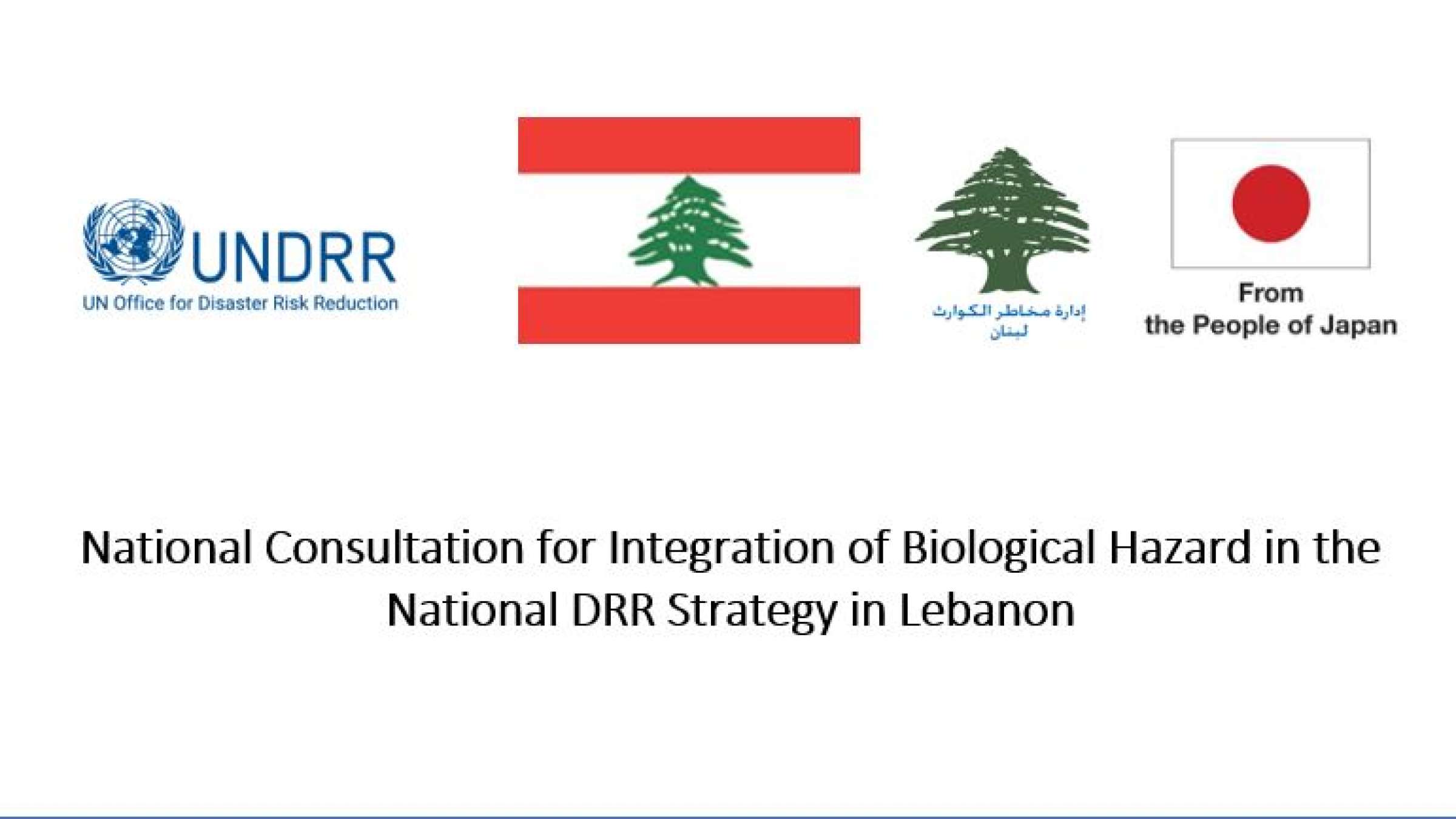National Consultation for Integration of Biological Hazard in the National DRR Strategy in Lebanon

January 27, 2022 - UNDRR Regional Office for the Arab States (ROAS) and the government of Lebanon organized the National Consultation for Integration of Biological Hazard in the National Disaster Risk Reduction in Lebanon that is generously funded by the government of Japan.
This consultation is part of the project that aimed to integrate biological hazards into the national DRR governance structure, as well as into the national DRR strategy by proposing a revised membership on the national DRR committee to include representation/expertise on biological hazard, revising the national DRR strategy (2021-2030) to integrate biological hazards and facilitating a national consultation process to validate the proposed governance structure.
Several activities were undertaken, some of these were conducted in parallel as they feed into more than one objective and are not consequential in nature including a) Developing a Biological Hazard Risk Portfolio and Emergency Capacity in Health as multiple sub-activities were conducted under this activity. These include: (1) an epidemiological overview of disease/risk factor burden, (2) characteristics of current health infrastructure (primary, secondary and tertiary care; emergency medical transport, risk assessment, and warning systems, etc.) in terms of capacity and geographic distribution and (3) emerging and anticipated biological hazard trends based on data review and available modeling and stakeholder input. The result of this exercise served as a basis for revising and updating the structure of the National DRR Committee/Platform to engage relevant partners and stakeholders. b) Desk Review and Benchmarking that comprised two main sub-activities: 1) A review of currently existing mechanisms within the health system (or beyond) on risk disaster management, 2) A desk review with a focus on benchmarking with countries/regions that went through the exercise to integrate biological hazards into its national DRR governance structure and strategy that aligns with the Sendai Framework, and in line with one or more of the guiding documents outlined above. C) Stakeholder Interviews to better inform the process of integrating biological hazards into the national DRR governance and strategy, interviews with key stakeholders were conducted. d) A Revised Structure of the National DRR Committee as a draft proposal for a revised governance structure of the National DRR Committee was proposed and discussed in a stakeholder meeting conducted in October 2021 and e) Revise the National DRR Strategy to Integrate Biological Hazards across the four priorities and fifteen axes which is currently revised by national stakeholders for input and feedback.
The consultation was chaired by Major General Mahmoud Al-Asmar, Secretary-General of the Supreme Defense Council & Chair of the National DRR Committee, and the government of Japan was represented by H.E. Takeshi Okubo, Ambassador of Japan to Lebanon

